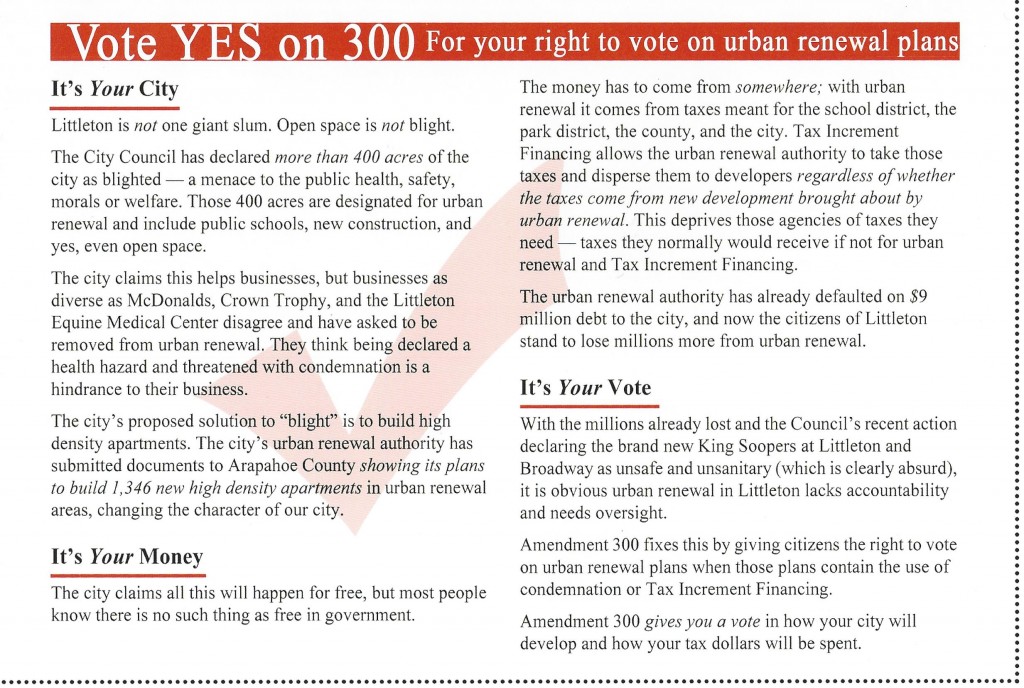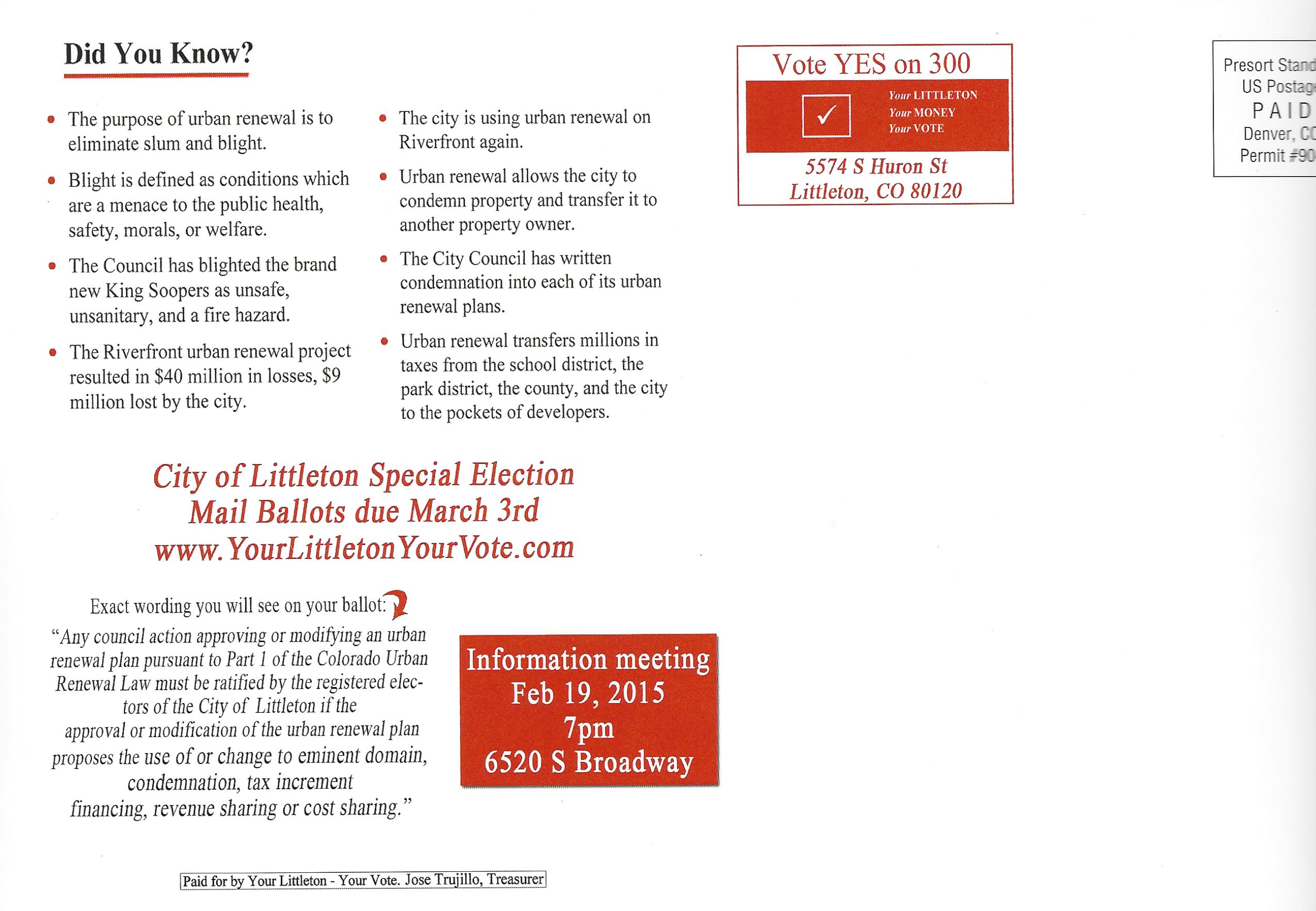Judge throws out Gaylord Rockies Hotel tax vote, Aurora appeals
An Adams County district judge on Tuesday invalidated an election used to boost tax rates within the land set aside for the Gaylord Rockies Hotel, a decision that Aurora quickly filed to appeal.
“The city did not obtain the required voter approval for the tax increases purportedly authorized at that election,” ruled Ted C. Tow III, a judge in the 17th Judicial District.
Aurora filed a notice of appeal within hours of the ruling and said the project to create the state’s largest hotel remains on track.
To read the rest of this article, click the following link:
http://www.denverpost.com/business/ci_27589880/judge-throws-out-gaylord-rockies-hotel-tax-vote
- Nov 23:
- Aurora’s Gaylord Rockies hotel project in legal limbo
- Nov 7:
- Judge tosses lawsuit filed by Aurora against Denver hotel group
- Apr 9:
- Aurora wins battle against Denver hotels in Gaylord hotel project
- Mar 19:
- Aurora asks judge to toss legal challenge to Gaylord-project subsidies
- Feb 25:
- Aurora residents sue city over tax incentives for Gaylord hotel
- Feb 21:
- Gaylord Aurora hotel lawsuits will stay on separate tracks
- Feb 9:
- Legal push keeping Gaylord doors shut
- Dec 5:
- Aurora seeks to stop lawsuit over Gaylord project
- Oct 23:
- Aurora and Gaylord Hotel developer file suit against Denver hotels
- Oct 18:
- Gaylord hotel names architect and construction firm
- Oct 10:
- Colorado economic commission OKs $81.4 million subsidy for Gaylord Hotel
- Sep 12:
- Aurora close to naming contractor for Gaylord Hotel project
- Aug 16:
- Foes of incentive process for Gaylord hotel weigh their next steps






